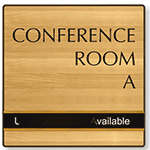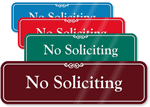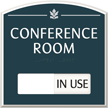Channeling FIFA fever can improve employee productivity
It sounds counterintuitive. Workers watching the FIFA World Cup means less work gets done, right? Not necessarily. If you assume workers are adults who plan their tasks around matches, productivity need not dip.
Eighty percent of the world is watching the World Cup, and, according to a survey, a majority of employees watched or listened to World Cup matches at work this year. Here’s why you should let them.

Letting employees watch the World Cup won’t decrease productivity like you might think. From IsakFotografi.
Watching matches together increases camaraderie
“Let’s be honest with each other: People are going to want to watch the World Cup one way or another,” says chief executive of restaurant app NoWait, Ware Sykes. Unlike other companies, which have forbidden employees from streaming the games on their computers, Sykes is “using this as an opportunity for fun.”
NoWait employees have watched many of the games collectively, as an office. Imagine Easy Solutions also chose to do so. “The energy around the office is awesome; everyone feels more connected to their co-workers and the products we work together on,” says Ross, a marketing manager there.
Football isn’t the only productivity leak
According to a study, the U.S. economy lost $121.7 million in the last football World Cup, due to 21 million Americans watching the games for 10 work minutes a day. But what about other reasons for lost productivity? Three in five respondents of a survey admitted that they spent over an hour at work every week on social media and other personal tasks.
“YouTube, email and texting costs billions of more in lost productivity than World Cup could ever hope,” says Jim Belosic, head of ShortStackLab, a company that lets employees can watch games on their own or together.
“Employers assume people don’t plan around this and just actively stop work to watch,” says Stan Veuger, an economist with the American Enterprise Institute. Perception of lost productivity is more of a problem than actual loss in productivity.
Productivity stretches beyond numbers
“A lot of managers still think about productivity, at the gut level, in terms of hours worked,” says John Challenger, chief executive of Challenger, Gray and Christmas. “If they see an employee watching the game, there’s some kind of visceral reaction that this is wrong somehow.”
A recent study recommended that employers allow staff to work from home, provide flexible working hours or air matches at work when possible. Watching matches as an office created opportunities for departments to get ideas from one another, according to Imagine Easy Solutions co-CEO Neal Taparia.
Taparia also found that his employees used the World Cup to strike up a conversation with sales prospects. Weaving the World Cup into marketing communication also generated more site views.
Some companies have declared holidays so that employees can watch matches. The Brazil branch of General Motors and Chile’s government copper production company Codelco are among them.
Category: New Products, Office courtesy














